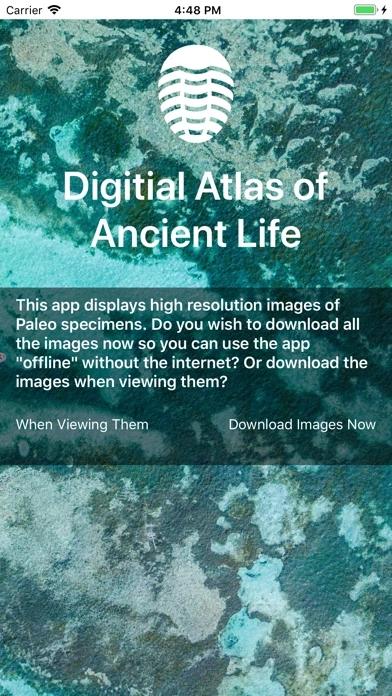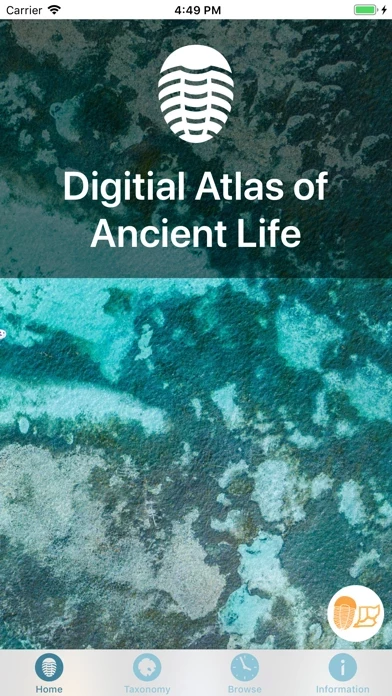It only covers three periods (Ordovician, Pennsylvanian, and Neogene), and for those it only covers selected invertebrates in a few states in the eastern US, with a different set of states for each time period. It doesn't even have Pennsylvania as one of the states for the Pennsylvanian, funnily enough.
The content it has for those is a list of some of the invertebrates found there, but they're organised taxonomically, so you have to already know what genus something is in to look it up. The photos are very limited and often undiagnostic, and the descriptions are fairly technical, just what's easily available in free databases. Some of the information is inaccurate, or at the very least imprecise (like claiming that Rusophycus is recognised in rocks from the Cambrian up to the present, or having incomplete occurrence data).
The design is not especially helpful, requiring users to tap through multiple times for ichnotaxa due to a poorly imagined plan to categorise them like other taxonomic groupings. The least the developers could have done is built a dichotomous key for the limited specimens, time periods, and locations they cover, but it seems that not even that is included.
This is a free app, so an amateur paleontologist might still want to get it just to have something to look at, but don’t expect this to be a useful resource — it’s not.













